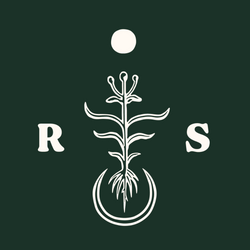CHAGA (Inonotus obliquus)
Chaga Mushrooms, also known as “black gold”, due to its cork-like orange tissue have been used for medicinal, ritual, and recreational purposes for centuries.
In Russia and western Siberia, the Khanty people have used Chaga as part of their natural medicine chest as far back as the 13th century. Apart from medicinal use to fight infections, shamans also steeped burned Chaga pieces in water, which then was used for ritual cleansing ceremonies.
In North America, the Cree, the Ojibway, the Denesuliné peoples of Northern Saskatchewan and the Gitksan of British Columbia use Chaga to treat many ailments, ranging from rheumatic and joint pain to treating infections, tooth ache and even rheumatic pain. Because Chaga produces a sweet-smelling incense it is was also often used in ancient pipe ceremonies. The Denesuliné peoples of Northern Saskatchewan used two long lines of powdered Chaga to answer questions about the future. Both lines were lit at opposite sides, whichever side finished burning first would show which event would become true. This is known to the Dene people as "etsen dek", “it smells when it’s burning.”
In Aleksandr Solzhenitsyn's novel Cancer Ward, Chaga is mentioned as a medical treatment to fight cancer. In a chapter called “The Root from Issyk-Kul,” the main character's doctor discovers a vial of dark fluid in his bedside table, prompting him to explain that it’s an extract of a root used by natural healers in Russia to cure cancer. This root is Chaga.
Chaga Mushrooms are a sterile conk fungus, which grows best on the outside of yellow and white birch trees in cold climates. Chaga is an extremely rare mushroom as it can be found on about one of every 4,000 birch trees. The Chaga fungus will eventually kill the birch tree, though they can live together for many years. The average size of a full-grown mushroom is 35-80cm, but they can definitely grow larger.
Chaga mushrooms often referred to as “The King of Mushrooms” are rich in a wide variety of vitamins, minerals and nutrients such as B complex vitamins, vitamin D, potassium, rubidium, caesium, amino acids, fibre, copper, selenium, zinc, iron, manganese, magnesium and calcium. Making Chaga an extremely nutrient-dense superfood. Chaga has one of the highest if not the highest antioxidant content of any other food. Chaga has one of the highest ORAC scores; 31 times higher than blueberries. ORAC (oxygen radical absorbent capacity) measures the antioxidant activity of a food. The higher the score, the better a food’s ability to support the body against the harmful effects of free radicals and oxidative stress. Chaga mushrooms can boost the immune system because they contain beta-glucans, naturally occurring polysaccharides that increase host immune defence by activating complement system, enhancing macrophages and natural killer cell function. Chaga also promotes the formation of cytokines, these proteins are the immune system's chemical messengers and stimulate white blood cells, which are the body’s first responders to infections or bacteria and viruses. Chaga has been known to assist with; slowing the ageing process, preventing and fighting cancer, lowering blood pressure, fighting inflammation, lowering blood sugar and has been found to be effective in weight management. Compounds called polysaccharides that are found in chaga are long chains of carbohydrate molecules which help support the body’s conversion of food into energy for a caffeine-free energy boost. Chaga contain many antioxidants that may reduce low-density lipoprotein (LDL), the so-called “bad” cholesterol. High cholesterol is a significant risk factor for heart disease, so Chaga mushrooms could be useful in the fight against cardiovascular disease, supporting healthy blood cholesterol and triglycerides.
Since Chaga may stop platelet aggregation, it should not be taken in combination with blood-thinning medications, such as aspirin and warfarin to prevent the risk of bleeding. Chaga may also lower blood sugar levels. Its combination with diabetes medicine may cause blood glucose levels to fall dangerously low. People with autoimmune diseases should avoid using Chaga because it can cause the immune system to become overactive.

